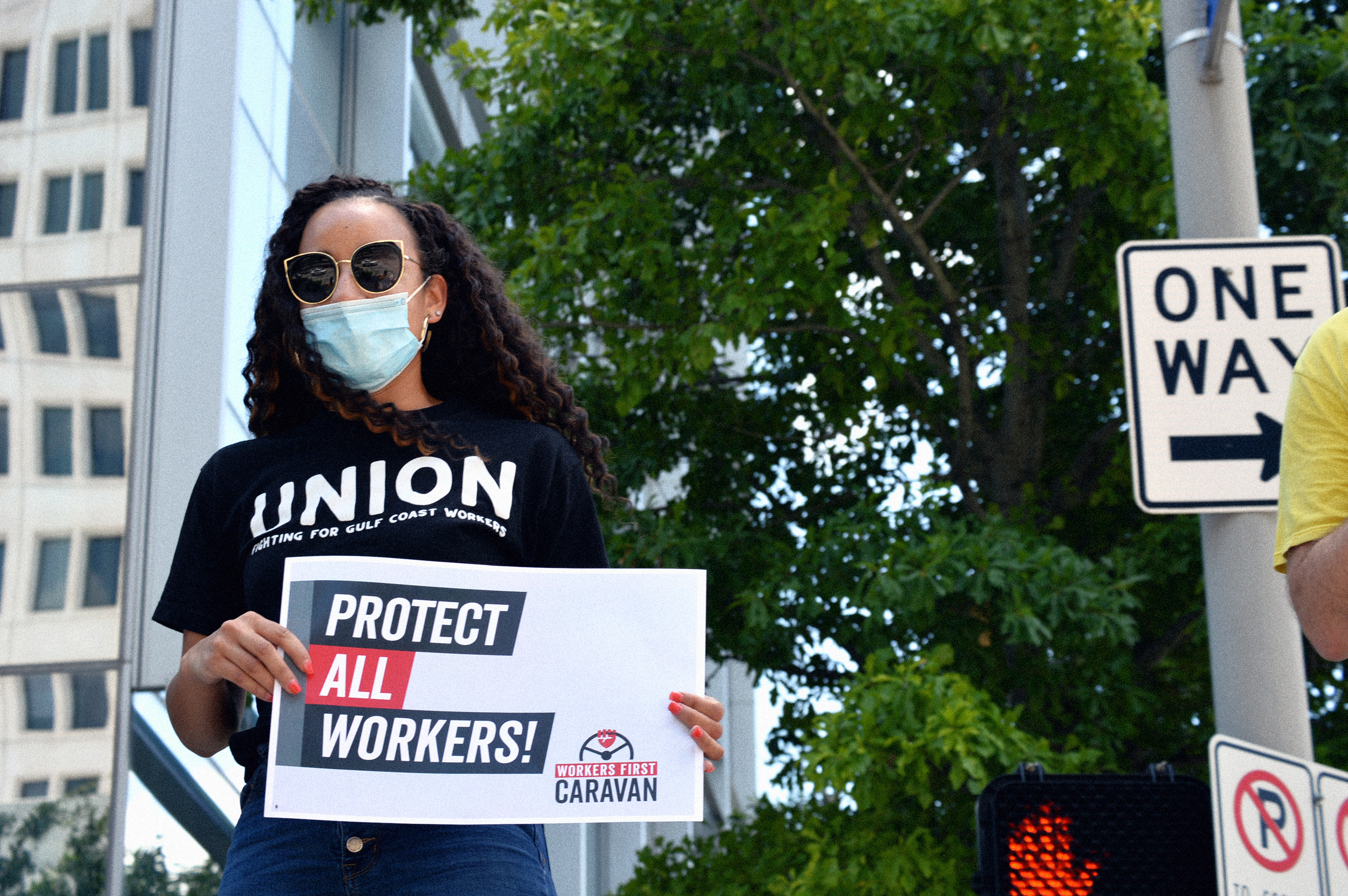Richard Trumka, AFL-CIO President:
We’ve covered a lot of ground over the past four days. We’ve passed important resolutions. We’ve debated urgent issues. We’ve heard from incredible speakers. This next segment brings it all together.
As we’ve discussed throughout the convention, the rules of our economy have been written so corporations win and working people lose. This assault on our rights and freedoms is bad for our families, our communities and our democracy.
When the rules have been rigged against us for so long… when we keep working harder for less... when corporations and politicians continue to chip away at our health care and retirement… when forming a union feels like climbing a mountain... it can be hard to know the next right step.
I think it’s time to get back to basics.
The policy agenda and political accountability measures passed this week put us on a path to the change we need. What’s missing is a clear, concise statement of rights that captures our aspirations.
Sisters and brothers, working people need a bill of rights.
A collective bargaining agreement for America.
This will serve as a platform for our members to rally around. It will give prospective members a clear statement of our values. And it will provide political candidates and elected officials with a litmus test for our support.
We simply refuse to accept the reality of struggling to make ends meet in the richest country in the world at its richest point in history. And so we demand rights that ensure we are able, through our work, to lead better lives.
Let me know turn it over to Liz Shuler.
Liz Shuler, AFL-CIO Secretary-Treasurer:
Thank you, Rich. This is an idea whose time has come.
We recently conducted a survey of working people and three quarters of respondents said they should have a bill of rights. And for good reason. Employers and politicians are conspiring to hold down wages.Outdated labor laws are making it harder and harder to form a union. Young people are graduating college with mountains of debt, if they can afford to go at all. Women are still being paid less than men for doing the same job.
Of the people we surveyed, a third do not have health insurance. Three in four do not have a pension. We can and must do better.
Throughout the week, we’ve spoken to delegates about what a Workers Bill of Rights would mean to them. Let’s see what they had to say.
Tefere Gebre, AFL-CIO Executive Vice President:
As you can see from that video, there is a lot of enthusiasm for guaranteeing every work basic freedoms and protections. So at this time, I’d like to briefly outline the components of our proposed Workers’ Bill of Rights.
- A Good Job with Fair Wages: Everyone who wants to work has the right to a good job where we earn a fair return on our work and receive a wage that allows us to support ourselves and our families.
- Quality Health Care: Regardless of income, job or a pre-existing condition.
- A Safe Job: Free from harassment and violence.
- Paid Time Off and Flexible Scheduling.
- Freedom from Discrimination: In hiring, firing and promotions.
- Retire with Dignity: And financial security.
- Education: Public K-12, higher education and career training that advances our knowledge and skills without leaving us in debt.
- Freedom to Join Together: To negotiate with our co-workers for better wages and working conditions, whether we are in a union or not.
- A Voice in Democracy: To freely exercise our democratic voice through voting and civic participation so that we can make sure our government stands up for this Workers’ Bill of Rights.
Sisters and brothers, we urge the labor movement to mobilize in coordination with all who share our values to make this bill of rights a reality for all working people.
I’d now like to call on Cecil Roberts, Chair of the Resolutions Committee, to move the resolution.
Cecil Roberts, UMWA President:
Thank you, Tefere. And thank you Rich and Liz. It is fitting that the Workers’ Bill of Rights is Resolution 1, because it includes all of our primary goals as labor movement. I strongly encourage the delegates to pass this resolution and use it as a tool to support our organizing and political work.
So on behalf of the Resolutions Committee, which recommends adoption, I move Resolution 1.


